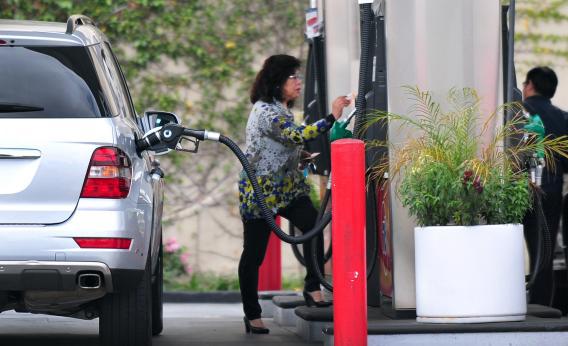Rising oil prices and interest rates are election-year bait for U.S. politicians. But in reality – along with higher stock markets – they suggest a long-awaited strengthening of the economy. But sticker-shock at the pump and more expensive debt could yet knock confidence.
This week, even bearish bond traders seem to have conceded that growth prospects look brighter. U.S Treasury yields, which had been stuck in a narrow, low range since October, rose substantially, with the 10-year yield adding more than 0.3 percentage points to 2.35 percent before settling back a bit on Thursday. Stocks have been on a tear for more than five months, with the S&P 500 Index breaching 1,400 this week for the first time since 2008.
Meanwhile, the price of crude oil for future delivery, while not at its high for the year, is still up 39 percent from its low in October. Setting aside any worries over Iran, that’s a sign that U.S. and global activity is regaining strength, even with Europe still struggling.
Republican presidential hopefuls, reluctant to acknowledge the recovery, are zeroing in on unsavory by-products. Mitt Romney, for instance, blamed President Barack Obama’s energy policies for high prices at the gas pump. And voters do care. Paying approaching $4 a gallon with the summer driving season in sight is likely to upset American drivers. Newt Gingrich has even promised the unlikely feat of cutting gas prices to $2.50 a gallon if he is elected.
If 10-year bond yields go much higher, there’ll be at least two more lines of attack. Mortgage interest rates would rise in tandem, so homes would become less affordable for buyers and existing borrowers would get less juice out of refinancing. Even as a consequence of economic growth, that would be tough on the already battered housing sector. And second, significant increases in bond yields could signal fear of future inflation, undermining the Federal Reserve’s stance that it can keep short-term rates low with no material risk of prices spiraling.
The GOP candidates may be selective with their arguments, but higher fuel and debt costs do matter to voters, and to the economy – especially in the early, relatively fragile stages of a recovery. For his part, Obama will be hoping growth won’t trip on headwinds like these before it hits its stride.
Read more at Reuters Breakingviews.
